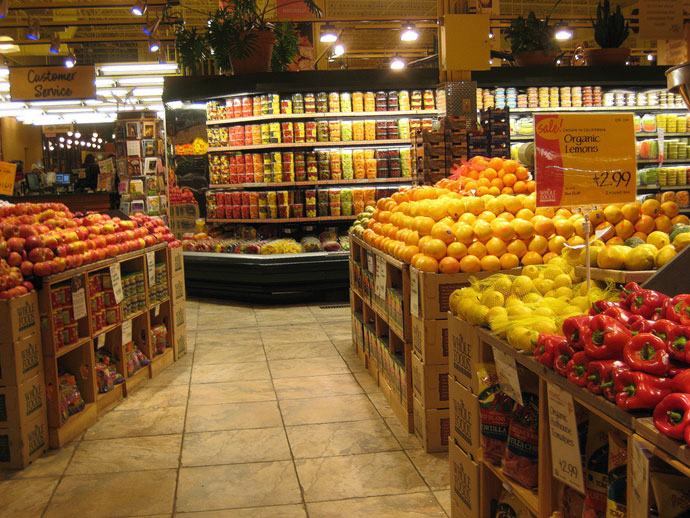Whole Foods To Launch A Rating System For Fruits And Vegetables

Image via Flickr/ Kate Skegg
Grocery giant Whole Foods will soon begin implementing a new system that ranks produce, but it’s not based on nutrition; it’s based on the farming practices of suppliers.
The new Responsibly Grown system, which will rank fruits and vegetables as either “good,” “better,” or “best,” according to the Associated Press, is slated to begin today, and will make customers more aware of factors like the amount of water and energy use that went into growing certain items (including flowers). The rankings will be noted on the same signs where prices are listed, presumably making all the fruits and vegetables that aren’t labeled as the best feel bad about themselves.
Whole Foods also notes that this labeling system will prohibit the use of various common pesticides. Matt Rogers, global produce coordinator for Whole Foods, told AP that the Responsibly Grown program is intended to eliminate the use of pesticides — including several organophosphate insecticides, according to a Whole Foods press release — that studies have indicated can be harmful to farm workers and children born to mothers that were exposed to these chemicals.
A farm has to take 16 “major steps” to protect soil, air, water and human health in order to be rated as “good,” according to Whole Foods, and must also restrict themselves to pesticides that have been approved by the EPA, even if the farm is located outside the U.S.
Responsibly Grown also addresses the issue of bees, according to Whole Foods. Problems like loss of habitat, pesticides and disease all threaten the pollinator population; Whole Foods wants growers to eliminate these pesticides and attempt to restore bees’ health.
As a result of this program, we are already hearing from fruit and vegetable farmers who are creating wildflower-rich habitat for bees and working to reduce or eliminate pesticides on farms from New Jersey to Iowa to California,” said Eric Mader, assistant pollinator program director for The Xerces Society for Invertebrate Conservation.
Although not all Whole Foods produce will be subject to the Responsibly Grown system at first, its goal is to eventually reach 100 percent of its fruits, vegetables and flowers.









































